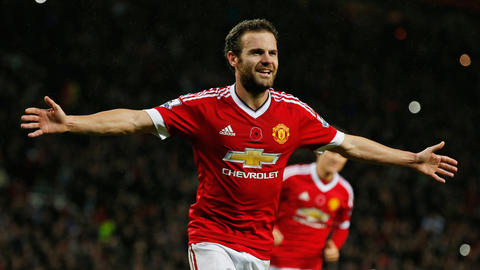Common Goal - The 1% are giving 1%.
24 September 2019 | By Nye Greenfield

Footballers’ wages remain one of the most contentious topics of public conversation today. In a society in which footballers regularly earn the average annual salary in a matter of hours, the increasing ascent of ‘Common Goal’ is a welcomed breath of fresh air.
During the most recent transfer window, headlines were published regarding Gareth Bale’s proposed move from Real Madrid to Chinese club Jiangsu Suning, which would have seen the Welshman pocket around £1 million per week under a lucrative contract.The move, which ultimately fell through, serves as a poignant reminder of the astronomical sums of money which footballers continue to earn, and the stark contrast with other sectors within society.
Common Goal
Launched on 4thAugust 2017, Common Goal was founded to bring together the global football community as a force to tackle some of the biggest social issues facing us today, from improving the delivery of education to reducing inequalities, throughout the entire world. The concept is simple; members pledge 1% of their earnings to a central fund run by the charity, who then support organisations who use football as a medium for the attainment of the seventeen goals for sustainable development, outlined by the United Nations.
What began as a relatively small organisation, Common Goal has grown rapidly. At first, the Manchester United footballer, Juan Mata was the only high-profile supporter of the charity. However, the reach and exposure has grown exponentially, and many other footballers have joined the project. The organisation now boasts Georgio Chiellini, Mats Hummels, and the stars of this year’s Women’s World Cup, Alex Morgan and Megan Rapinoe, who states“I love the concept. It’s 1% of your salary, so whether you make 1 dollar or a million you can make an impact and be part of a bigger team of players worldwide.”Just yesterday, at the 2019 Best Fifa Football Awards in Milan, Liverpool coach Jurgen Klopp announced that he too is a "Member of the Common Goal family."The fact that the Best Men's Coach in the World has joined the cause, not only illustrates the continual rise of the project, but also its potential to attract the support of the upper echelons of the game.

(Common Goal Members, from left to right: Juan Mata, Alex Morgan, Megan Rapinoe and Mats Hummels).
The Common Goal website is laden with emotive and inspiring stories about the positive impact which the organisation and its partners are having upon the lives of people throughout the world. It’s series ‘Story from the Field’ travels the globe, detailing how the organisation is enriching the lives of those that it touches. Sameth, who coaches young children with disabilities at the Indochina Starfish Foundation in Cambodia details exactly how football coaching has made a positive impact upon his life. The support from Common Goal has not only given him a route out of poverty, but an incredibly rewarding career too, which is a testament to the charity and its advocates.

Could this work in other sectors?
As Common Goal continues to grow, and evermore famous footballers continue to join the cause, it provokes a number of questions. Can this model be extrapolated to other settings? How far can this idea extend? Perhaps what is most endearing about the work of Common Goal, is the illustration that the powerful forces of collective interest, joint partnership and cooperation, if steered in the correct direction, can affect potentially infinite levels of social change. To that end, the transcendence of this fundraising model is exemplified and extended by the ‘Pledge 1% movement,’ where corporations and the individuals which constitute them, contribute a hundredth of their salary. In addition, the Pledge 1% movement also offers a number of novel ways to contribute, such as donating 1% of your time, product or even equity of the company. Furthermore, the fact that large companies such as Yelp and Yahoo subscribe to the idea demonstrates both the attractiveness and applicability of the 1% pledge, and highlights how it can be utilised across a number of aspects of our societal structure to enhance social development.
Whilst footballers who earn exorbitant wages, and corporations which rampantly pursue profit may traditionally juxtapose notions of social good, movements such as these allow synchronisation between the two. Although it is important to note that projects such as these may be in their infancy relative to the industries from which they are borne out of, their presence and continued growth symbolise a progression in our approach to collective development.
It remains to be seen whether such laudable initiatives will satisfy the growing discontent towards those who earn such vast sums of money, but they certainly represent a step in the right direction.
What do you think? Are there other models like this that are making a change? We’d love to hear.
Get in touch with us on Twitter: @OfficialCause4
References:
https://shekicks.net/megan-rapinoe-alex-morgan-sign-common-goal/



